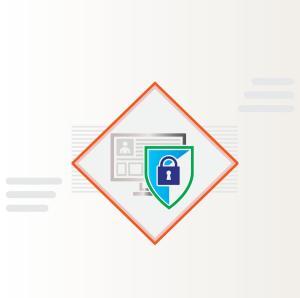In today’s digital age, where almost everything is conducted online, the importance of domain validation in CA certificates cannot be emphasized enough. A correct certificate validation process is vital to ensure a server’s or website’s authenticity. Without proper validation, an attacker can intercept and manipulate the traffic between a client and server undetected, leading to dire consequences. To prevent this from happening, Certification Authorities (CAs) play a crucial role in ensuring secure communication between network nodes.
However, recent research has shown that domain name system (DNS)-based domain validation by CAs is not always dependable and can be abused to have a CA issue certificates for arbitrary domains.
This is alarming because an attacker who obtains a valid certificate for a domain name can impersonate an authentic server, and the client would be none the wiser.
This means that an attacker in possession of a valid certificate for the requested domain name can impersonate an authentic server even when the client applies correct certificate validation procedures. Therefore, it is essential to have multiple layers of verification and validation processes in place to ensure a website or server’s authenticity and security. Moreover, domain validation is not just about preventing malicious attacks. It also helps to build trust and confidence in the online community. Customers are more likely to trust and do business with companies that use validated certificates, which can lead to increased reputation, credibility, and revenue.

It is crucial to recognize that proper domain validation plays a vital role in ensuring the authenticity and security of online communication. Therefore, organizations need to use reliable certification authorities and implement multiple layers of verification processes to mitigate the risk of domain validation failures. To prevent potential attacks and maintain trust in the online community, organizations must prioritize implementing multiple layers of validation processes to ensure the authenticity of their domains and maintain the security of online communication. The importance of domain validation in online security cannot be emphasized enough, as the risk of successful attacks and impersonation is a significant threat to individuals and organizations alike. In today’s digital landscape, the risk of online attacks and impersonation is a significant threat to individuals and organizations alike. Proper domain validation plays a vital role in ensuring the authenticity and security of online communication. Implementing advanced domain validation techniques such as multi-CA validation, self-authenticating traditional addresses, and blockchain-based solutions can significantly mitigate the risk of compromise and hijacking. Organizations must prioritize implementing these techniques and multiple layers of verification processes to prevent potential attacks and maintain trust in the online community.
In summary, organizations must take proactive steps to implement advanced domain validation techniques, multiple layers of verification processes, and reliable certification authorities to protect against potential attacks and maintain the security of online communication. Contact Netrust at https://www.netrust.net/contact-us/ or drop us an email at sales@netrust.net to get started!
Stay ahead with the latest industry insights and updates from Netrust.
Follow us on LinkedIn ▶️https://lnkd.in/gE_G7akj for the most recent happenings of today’s digital age.


